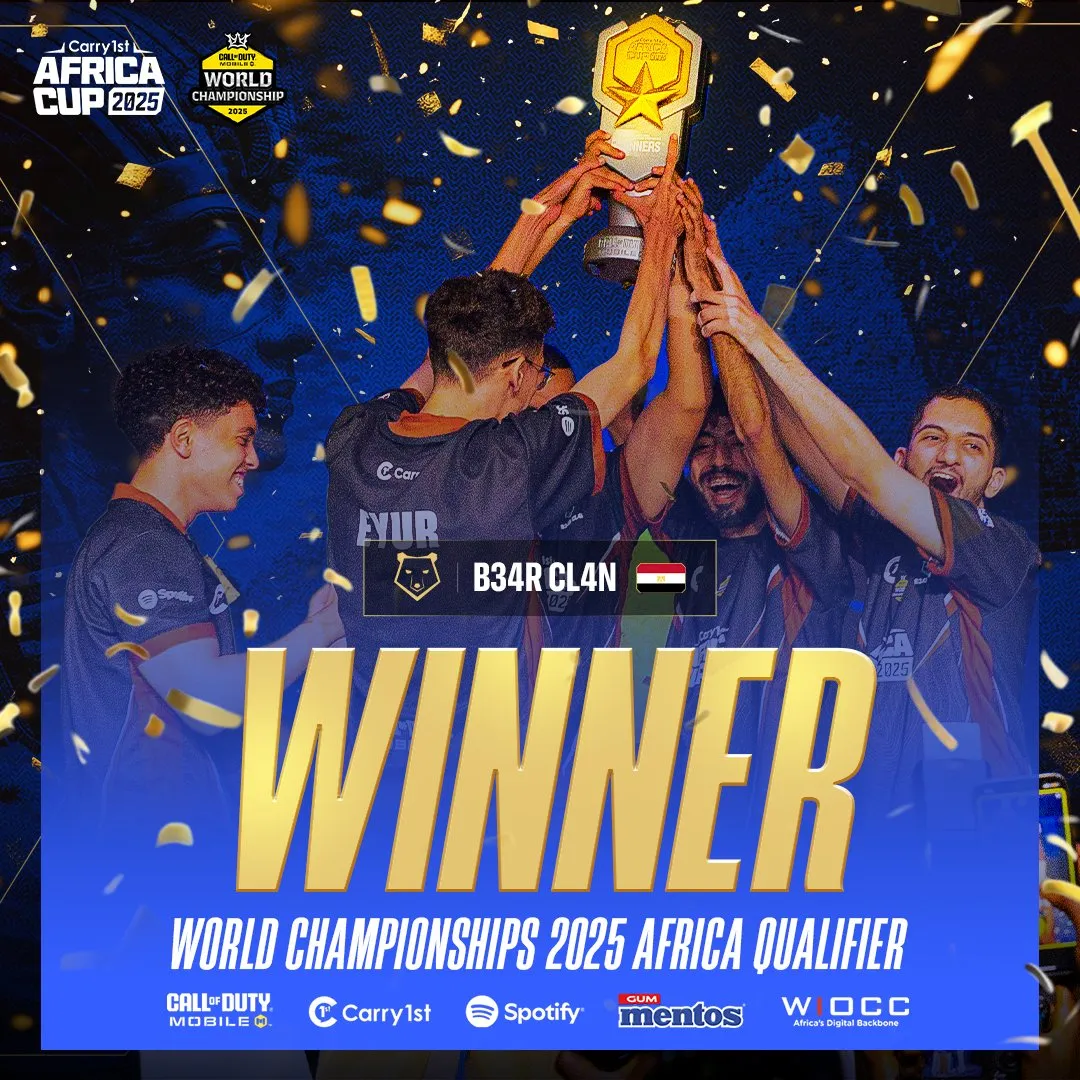It’s safe to say that the entire tournament has become a watershed moment for African esports. With Bear Clan’s victory, Africa has officially made its mark on the global esports stage, offering a glimpse of what the future holds for the continent’s gaming scene.
As the Carry1st Africa Cup concludes one chapter and opens up another with the World Championships, we take a deeper look at the lasting impact this tournament will have on African esports.
Setting the Stage: The Growing Influence of African Esports
The past decade has seen a significant growth in the African gaming market, and the Carry1st Africa Cup has been a key catalyst for the development of African esports. According to Newzoo’s Global Games Market Report, Africa is the fastest-growing gaming market in the world, with revenues projected to hit $1.8 billion by 2026. This rapid expansion is driven by increasing smartphone adoption, improved internet infrastructure, and a growing gaming community. The Africa Cup has emerged at a time when this market is coming into its own, offering a spotlight for African talent to showcase their skills on the global stage.
The Carry1st Africa Cup is the first major tournament of its kind to attract such attention, not only within Africa but globally, highlighting how African teams are finally getting the recognition they deserve. This year, the tournament boasted a prize pool of $15,000, a clear indication of the increasing commercial viability of esports in Africa.
A Platform for Africa’s Best Talent
The Carry1st Africa Cup’s impact is not just financial; it’s also about providing a platform for African talent to shine. Bear Clan’s victory and Sierra7’s competitive showing, alongside Paradox, are tangible proof that African teams can go toe-to-toe with the world’s best. For the players and teams involved, it’s an unprecedented opportunity to gain global visibility.
- Local Teams on the Global Stage: African teams have long been seen as underdogs in the global esports scene. However, the success of Bear Clan, who will go on to represent Africa at the 2025 Call of Duty: Mobile World Championship, proves that African teams have the skill and strategy to challenge top-tier teams. This victory marks a turning point in the perception of African esports, demonstrating that the continent can produce championship-level teams.
- Talent Scouting and International Exposure: The Africa Cup has provided African players with a platform for international talent scouts and sponsors to recognize their potential. As esports sponsorships continue to grow, African players now have greater opportunities to secure endorsement deals, participate in international leagues, and gain visibility in the esports ecosystem.
Challenges Faced by African Esports: A Long Road Ahead
While the Carry1st Africa Cup has been a monumental success, it also highlights the challenges that African esports still faces. These challenges range from infrastructure issues to gaps in sponsorship and limited professional opportunities.
- Connectivity Issues: Internet connectivity remains a significant hurdle across many African countries. Despite improvements in mobile networks, many gamers continue to face challenges, including high ping rates and inconsistent online play. This can create disparities between African players and their counterparts in more developed esports markets. Tournament organizers, such as Carry1st, have made strides to mitigate this, but further infrastructure development is needed to level the playing field.
- Sponsorship and Funding: While the Carry1st Africa Cup saw impressive sponsorship support, African esports as a whole is still working to secure consistent and high-value sponsorship deals. Many teams and tournaments struggle to find the same level of investment seen in North America or Europe. Increased investment from both local and global brands is critical to ensuring the sustainability of African esports.
- Player Development and Retention: For African esports to thrive, there must be a focus on developing young talent from grassroots levels. Many African countries lack structured esports academies or player development programs, which limits the potential of new talent coming through the ranks. Investing in coaching, training programs, and local tournaments will be crucial for long-term growth.
The Broader Cultural Impact of Esports in Africa
Esports has never really been just about the games played. The community, culture, and identity are far more significant elements than anything else. Thus, the Carry1st Africa Cup has united players from across Africa, creating a sense of these three elements, using Call of Duty: Mobile as its driver. This is especially evident in the growing fan base for African esports, as fans now have teams and players to support on the global stage in various titles.
Esports has become a cultural movement, with the Africa Cup helping African esports become a source of pride for many. For instance, teams like Eclipse Gaming and Sierra7 have become household names in Nigeria, and even outside their respective homes, other teams like Bear Clan and ParadoX have earned the respect of fans. In the same vein, their successes have inspired a new generation of gamers. In a continent where sports like football and basketball traditionally dominate, esports is now carving out its place as the next big thing.
Conclusion: A New Era for African Esports
The Carry1st Africa Cup 2025 has definitely reshaped African esports as a whole. Landscape. A step ahead of any other competition or tournament, it has provided a platform for African talent to shine, driven investment into the esports ecosystem, and laid the groundwork for the industry's future.
As Bear Clan heads to the 2025 Call of Duty: Mobile World Championship, the Africa Cup has proven that Africa is ready to compete on the world stage. The journey is far from over, but the Carry1st Africa Cup has undeniably left an indelible mark on the future of African esports.







.svg)